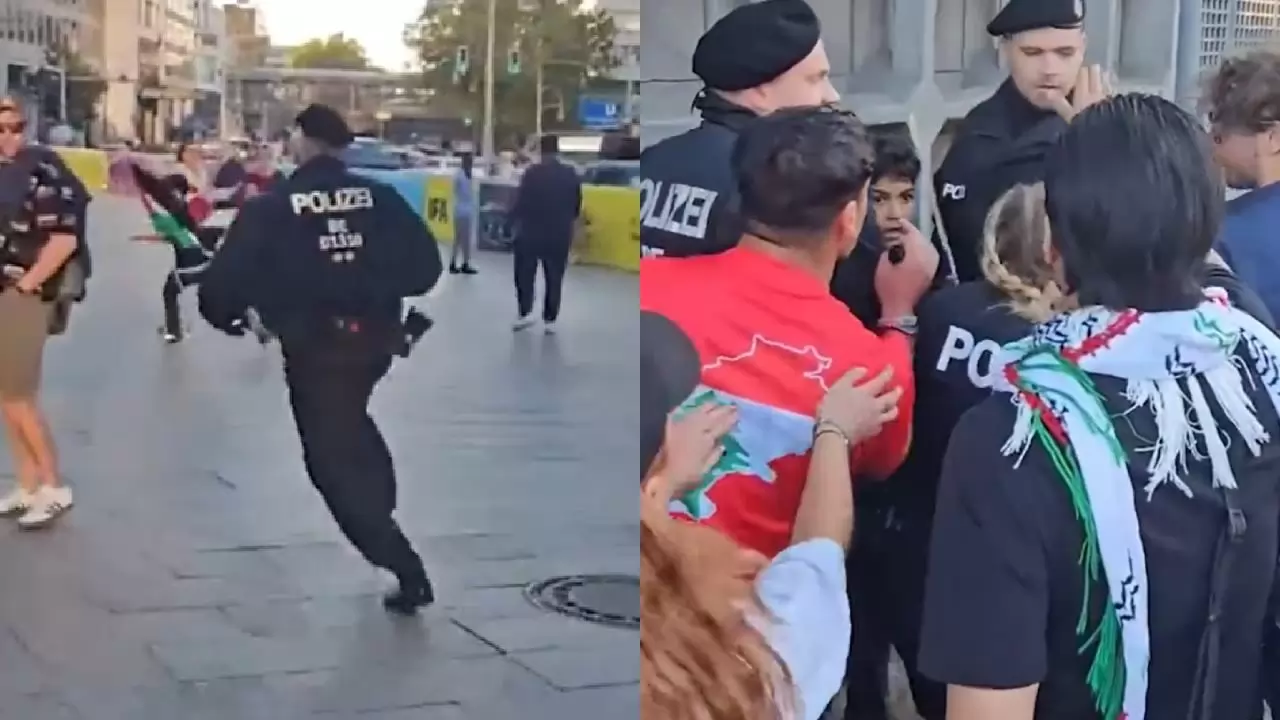
Screengrab of video shows Berlin police chasing kid. (X/redstreamnet)
Berlin: A young boy waving a Palestinian flag was chased down and arrested by Berlin police during a pro-Palestine protest in the German capital. Footage from the event shows the visibly distressed boy being taken away by a large group of riot police at the protest's edge, sparking concerns over freedom of expression and police action during demonstrations.
Berlin police chased down a young boy waving a Palestinian flag, ultimately arresting him. Footage shows the distraught-looking boy being taken away by a large number of riot police at the edge of a pro-Palestine protest in the German capital. pic.twitter.com/rQMQ6UUwXd
— red. (@redstreamnet) September 21, 2024
In a parallel development, heightened security measures have been observed at Frankfurt an der Oder, a German-Polish border town where an ironic sign reads, "Frankfurt Oder/Slubice – no borders." This sign stands in stark contrast to the strict checks being conducted on the border between the two countries. A bridge connects Frankfurt to the Polish town of Slubice, with a line of cars waiting to cross. German police, some heavily armed, inspect vehicles and pull over those they deem suspicious.
"It’s routine here to check people who don’t meet the entry requirements for Germany or the Schengen area, and further police measures may be necessary," said Tom Knie, a young police officer on duty.
On September 16, Berlin issued an order to temporarily reintroduce border controls at its frontiers with Belgium, Holland, Luxembourg, France, and Denmark. These controls are an extension of those already in place at Germany’s borders with Poland, Austria, the Czech Republic, and Switzerland, which have been in effect since October.
The reintroduction of these border checks reflects growing concerns over German domestic issues, particularly the rising influence of the far-right. These concerns also signal the end of the liberal migration policy known as Wilkommenskultur or "welcome culture," which was introduced by former Chancellor Angela Merkel in 2015. This shift in policy raises broader questions about the future of the Schengen zone and the principles of free movement within the European Union.





Copyright © 2026 Top Indian News
